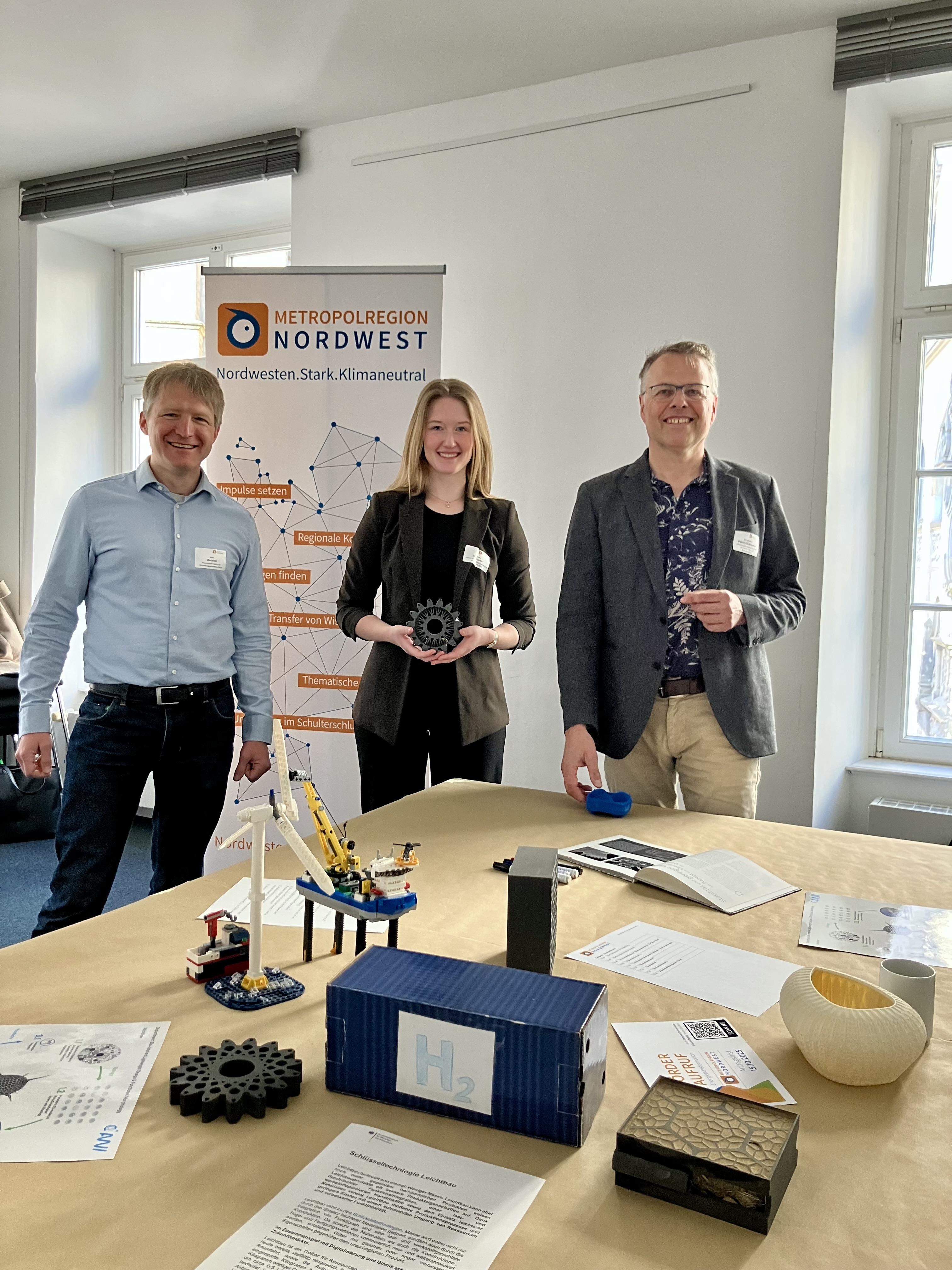ISL Contributes to the Energy Transition
How can the energy transition in the Northwest Metropolitan Region become a real gain for the economy, society, and the environment?
This was the central question addressed at the first symposium of the Scientific Advisory Board of the Northwest Metropolitan Region, held on May 16, 2025, at the House of Science in Bremen. Around 100 experts from science, industry, administration, and politics came together to discuss key challenges and opportunities of the regional energy transition.
The morning focused on an interactive World Café format with six thematic tables. Discussions explored how to strengthen regional value creation, attract skilled workers, and ensure both social and spatial justice. Climate protection, public acceptance, and resource efficiency also played a central role.
One table that drew particular attention was titled “Climate Protection, Resource Conservation and a Livable Environment.” This session was co-hosted by Friederike Woltmann (ISL) in cooperation with the Fraunhofer IWES and the Alfred-Wegener-Institute. Participants explored the interrelations between wind energy, lightweight construction, bionics, and hydrogen—focusing on sustainable synergies and pathways toward a future-proof environmental strategy.
In the afternoon, a high-level panel discussion brought together key stakeholders from politics, administration, and research, including Sven Ambrosy (District of Friesland), Dr. Marcel Krämer (swb AG), Maike Frese (State Councillor for Economy, Ports and Transformation), Dr. Anna Meincke (Lower Saxony Ministry of Economic Affairs), Prof. Dr. Dr. Alexis Papathanassis (University of Applied Sciences Bremerhaven), and Olaf Reichert (Powerhouse Nord).
Prof. Dr. Andreas Freytag (Friedrich Schiller University Jena), who opened the event with a keynote speech, concluded:
“The Northwest Metropolitan Region clearly demonstrates how the energy transition can be shaped not only technologically and economically, but also socially and ecologically—with national impact".



